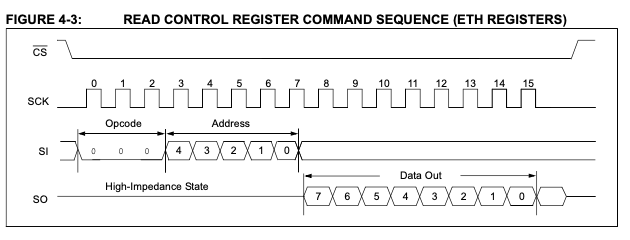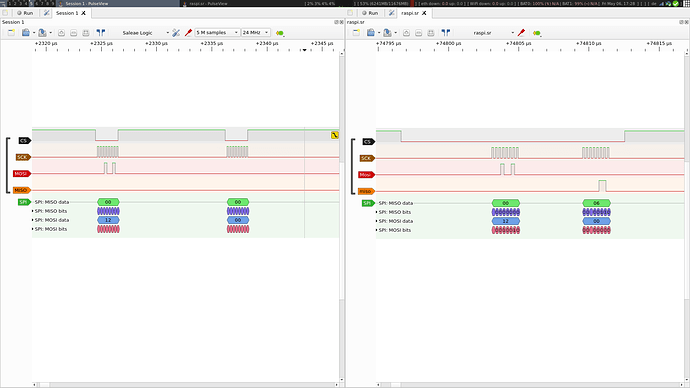@kwisatz Hi , firstly I think you have done some excellent research in this thread , and it has inspired and equipped to implement the overlay for the Waveshare CAN hat onto the Radxa Zero . I had done something similiar for RockPi S , but AMlogic resources and examples are in short supply on the internet.
The CAN hat employs Microchip MCP2515 , but its interface is not unlike the enc 28j60, meaning it has a SPI interface and a GPIO external IRQ interface. So with your help I have compiled the following dts source, and it works perfectly . Don’t know why I don’t have any SPI issues , could be because the packets are smaller and less frequent than Ethernet.
Blockquote /dts-v1/;
/plugin/;
/ {
compatible = “radxa,zero”, “amlogic,g12a”;
fragment@0
{
target-path = "/";
__overlay__
{
can_mcp2515_osc: can_mcp2515_oscs
{
compatible = "fixed-clock";
clock-frequency = <12000000>;
#clock-cells = <0>;
};
};
};
fragment@1
{
target = <&gpio>;
__overlay__
{
mcp2515_int_pin: mcp2515_int_pin@0
{
amlogic,pins = <&gpio 48>; /* or is it <&gpio 85> ? */
amlogic,function = "irq"; /* in - whether "out" (1) or "in" (0) */
// amlogic,function = <0>; /* in - whether "out" (1) or "in" (0) */
amlogic,pull = <0>;
};
};
};
fragment@3
{
target = <&spicc1>;
__overlay__
{
pinctrl-0 = <&spicc1_pins &spicc1_ss0_pins>;
pinctrl-names = "default";
#address-cells = <1>;
#size-cells = <0>;
status = "okay";
mcp2515: spidev@0
{
compatible = "microchip,mcp2515";
reg = <0>;
interrupt-parent = <&gpio_intc>;
interrupts = <60 2>;
spi-max-frequency = <12000000>;
clocks = <&can_mcp2515_osc>;
pinctrl-0 = <&mcp2515_int_pin>;
};
};
};
};
As you can see I am using SPI1 (SPIB per gpio pinout diagram) and i am using GPIOC_7 as the GPIO IRQ input. Gpio number 48 represents the GPIOC_7 and the IRQ number 60 the IRQ mapping for GPIOC_7. The latter I got from your link table below :
- 223:100 undefined (no interrupt)
- 99:97 3 pins on bank GPIOE
- 96:77 20 pins on bank GPIOX
- 76:61 16 pins on bank GPIOA
- 60:53 8 pins on bank GPIOC
- 52:37 16 pins on bank BOOT
- 36:28 9 pins on bank GPIOH
- 27:12 16 pins on bank GPIOZ
- 11:0 12 pins in the AO domain
So thank my man , you did some great work here . Have you managed success regarding your ethernet interface ?
Kind Regards
Anton


 So, changing to GPIOC_7, number 60.
So, changing to GPIOC_7, number 60.